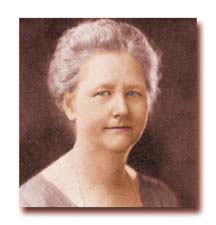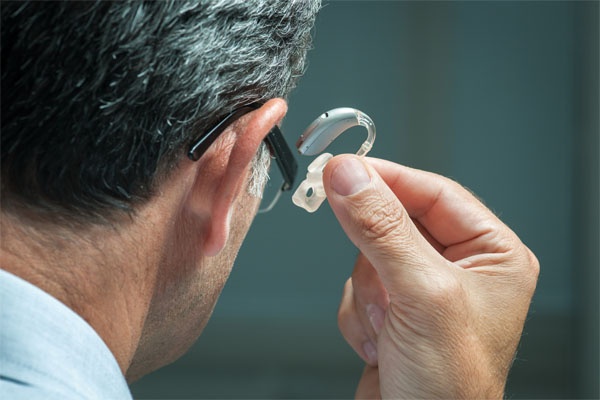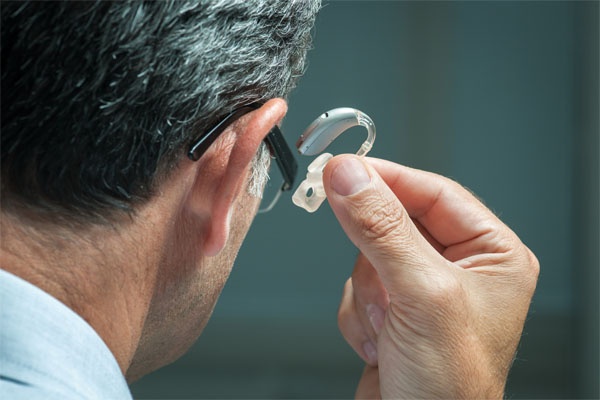2021: A Century of Serving Northeast Ohio!
I couldn’t be prouder to lead an organization with a legacy and mission that have stood the test of time. Looking back, there is so much about our story that inspires me. This will be the first in a series of reflections to bring you along on the century-long journey of Cleveland Hearing and Speech Center (CHSC). As you read along, I hope you will share in my sense of awe and wonder as we embark on our second century of serving Northeast Ohio.
Read More
Tags:
Hearing Aid,
Audiology,
Language,
Hearing Aids,
Communication,
Hearing,
Hearing Loss Prevention,
Deaf,
Hard of Hearing,
Hearing Loss,
Cochlear Implants,
Deafness,
Early Intervention,
Communication Access
With the latest iOS 14 update comes a new feature, which can be valuable to ALL users, but particularly for those who are hearing impaired or deaf.
Read More
Tags:
Hearing Aid,
Audiology,
Hearing Aids,
Hearing,
Deaf,
Hard of Hearing
We are often asked “I’m home alone - do I really need to wear my hearing aids?” The quick answer is YES! We encourage our patients to wear their devices as much as possible every day. Below are some of the reasons, supported by science.
Read More
Tags:
Hearing Aid,
Audiology,
Hearing Aids,
Hearing,
Hard of Hearing,
Hearing Loss
October 22nd is International Stuttering Awareness Day. Stuttering affects more than 70 million people worldwide - which is about 1% of the population. In the United States, that's over 3 million Americans who stutter. Approximately 5 percent of all children go through a period of stuttering that lasts six months or more. Three-quarters of those will recover by late childhood, leaving about 1% with a long-term problem. The best prevention tool is early intervention, and Gabby’s story is a perfect example…
Read More
Dyslexia is a specific learning disability that is neurological in origin. It is characterized by difficulties with accurate and/or fluent word recognition and by poor spelling and decoding abilities. These difficulties typically result from a deficit in the phonological component of language that is often unexpected in relation to other cognitive abilities and the provision of effective classroom instruction. Secondary consequences may include problems in reading comprehension and reduced reading experience that can impede growth of vocabulary and background knowledge.
Read More
Tags:
Speech,
Language,
Communication,
literacy,
Wilson Reading Program,
Learning,
Dyslexia
When choosing a hearing aid, there are many considerations. What will it look like? What will it do? An important consideration is of course your hearing loss. Your lifestyle and listening needs also play a critical role. Your vision and dexterity also are factors – will you be able to see small disposable batteries, insert them properly, clean the small components of the hearing aid? Would a lithium ion rechargeable product be best?
Read More
Tags:
Hearing Aid,
Audiology,
Hearing Aids,
Communication,
Hearing Loss Prevention,
Hard of Hearing,
Hearing Loss
To get young children talking, we often motivate them by showing that “using your words” can get you what you want. A simple way to achieve this is through “People Play”. People Play describes “songs, games and activities in which the fun happens when the child interacts with another person” (The Hanen Program, More Than Words). So grab a blanket or a couch cushion and enjoy some of these great ways to play and interact that will also motivate your child to request more fun! The one-word language suggestions can always be lengthened into phrases or sentences depending on your child’s expressive language level.
Read More
Tags:
Speech,
Language,
Communication,
Learning,
toddler,
talking
With the COVID-19 global pandemic and the suggested (and at times required) use of face masks, people with hearing loss are limited in their ability to use their vision to support their hearing and communication.
Read More
Tags:
Hearing Aid,
Audiology,
Communication,
Hearing,
Hearing Loss Prevention,
Hard of Hearing,
Hearing Loss,
"ears",
Face masks
Imagine: A child comes home from cheering for their favorite team at a high school game, and their voice sounds raspy. The next day when they wake up, their voice is gone completely and they can barely speak at all. Sound familiar? Maybe a similar occurrence has happened to you, except it was when you woke up with a bad head cold. This is something we commonly hear people refer to as “losing my voice.” What people think of as “losing their voice” can range from a hoarse, raspy voice to no voice at all. Have you ever wondered what exactly happens to our body to cause this to happen?
Read More
Tags:
Speech,
Language,
Communication,
Voice,
talking


















